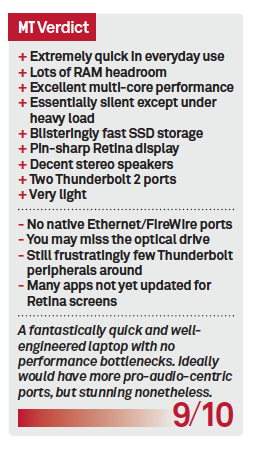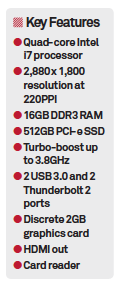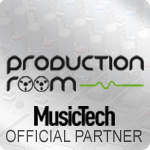Apple Retina MacBook Pro Review
Apple’s Pro laptops are much-loved by musicians, but what do the very latest models bring to the party? Hollin Jones finds out. Details Price 2.3GHz £2,199. 2.6GHz (reviewed here) £2,399 Contact Apple – 0800 048 0408 Web www.apple.com/uk Apple’s portable computers have become increasingly popular with musicians thanks not just to their portability, but because multi-core processors […]
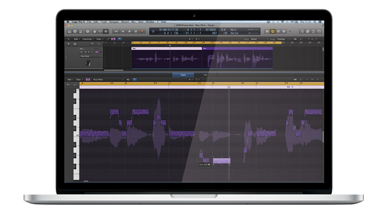
Apple’s Pro laptops are much-loved by musicians, but what do the very latest models bring to the party? Hollin Jones finds out.
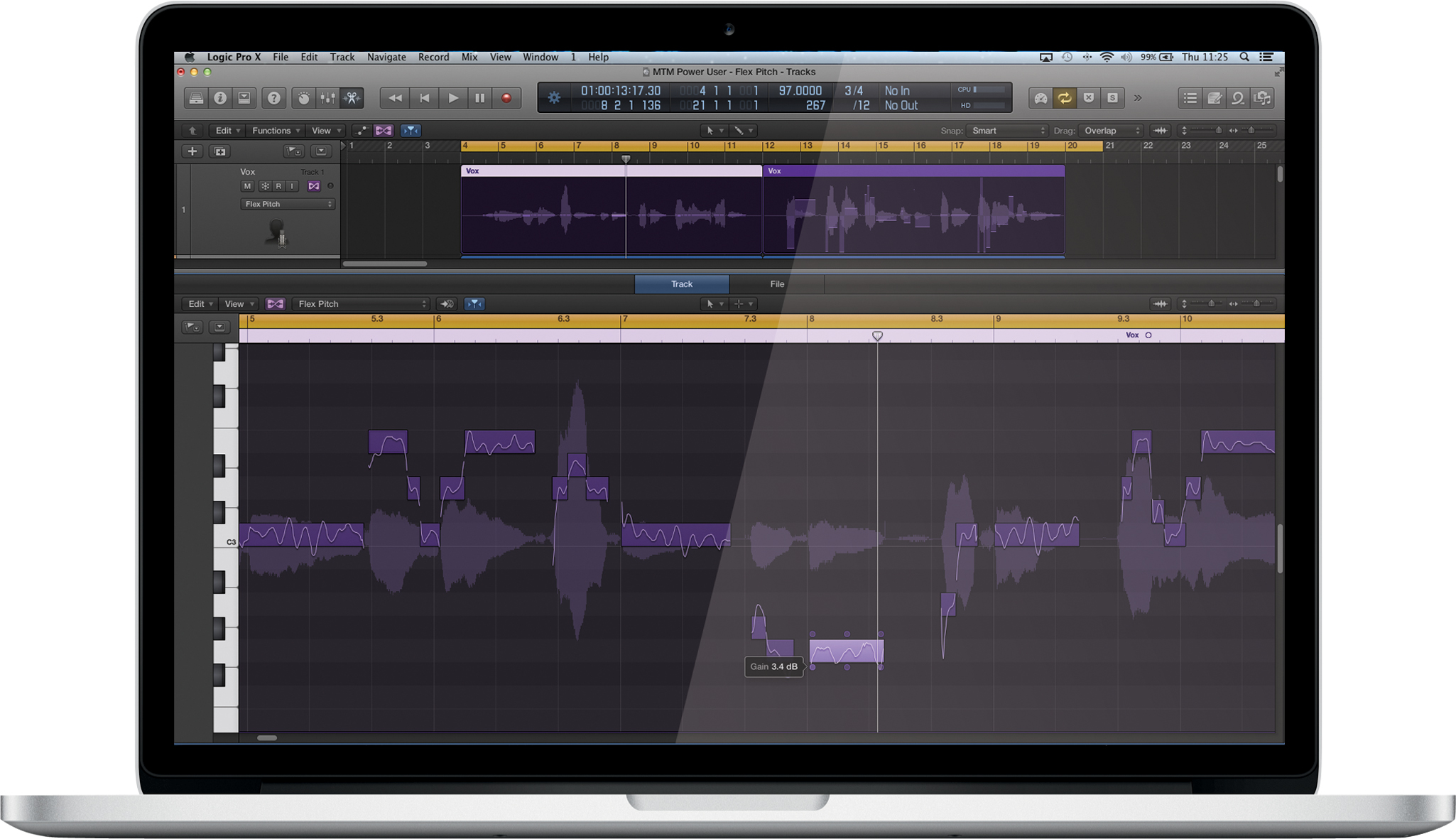

Details
Price 2.3GHz £2,199. 2.6GHz (reviewed here) £2,399
Contact Apple – 0800 048 0408
Web www.apple.com/uk
Apple’s portable computers have become increasingly popular with musicians thanks not just to their portability, but because multi-core processors and shrinking technology have enabled ever-smaller machines to offer desktop levels of performance. The 13-inch model is nice and compact, but the 15-inch offers a better all-round experience for content-creators. The latest Haswell and Crystalwell chips are Intel’s fastest mobile processors ever, so what can musicians expect from the new flagship portable Macs?
Light Heavyweight
The Retina MacBook Pro 15-inch is incredibly light compared to pre-Retina models thanks to the unibody design and the omission of an optical drive or spinning hard drive. It seems slightly unnecessary to point out that it’s gorgeous to hold and use, and thanks to the solid-state storage it’s essentially also silent except when under the heaviest load (even then, fan noise is minimal). Although the Retina screen isn’t vital for music work, it’s a great thing to have: OSX looks pin-sharp and the colours/contrasts are incredible.
Many DAWs and plug-ins haven’t been updated for Retina support as yet, so graphics can appear slightly fuzzy. Perhaps now that more of Apple’s lineup is Retina-equipped, developers will begin to support it more actively. The top-end model reviewed here also has the NVIDIA GeForce GT 750M graphics card with 2GB RAM. Again, it’s not essential for music work, but for anything image- or video-related (and gaming) it’s a nice addition.
Solid State
These laptops use the PCI-e interface for the solid-state drives (SSDs) and they are staggeringly quick in everyday use. Booting from cold takes around ten seconds; shutdown around half that. Launching virtual machines using VMware Fusion is blisteringly fast and file-copying/installations are similarly speedy.
The 512GB SSD supplied is decent, though you’ll still want to offload most of your sample/content libraries to an external drive. Boosting the drive to 1TB adds a whopping £400 to the price, so unless you really need more internal storage, invest in a spacious external drive.
Apple has slimmed-down its MacBook Pros by removing the optical drive and some ports. You get two USB 3.0 ports, dual Thunderbolt 2 ports, headphone out, HDMI out and a card reader – there’s no Ethernet or FireWire, both of which can be added via a Thunderbolt adaptor. It’s a bit pointless to complain about losing the ports because it’s a done deal and the sleek form factor that results is arguably worth it.
The chances are you will buy a £25 adaptor or two rather than re-investing in new Thunderbolt peripherals since there are very few on the market. A Thunderbolt dock is an interesting way to bring back those old ports, though be prepared to pay around £200. A lot of pro-audio peripherals use USB, of course, and they should work fine. FireWire kit will need an adaptor and possibly updated drivers for OSX 10.9, which is the default OS for these new models.
In Use
In terms of performance, the top-end CPU benchmarks very well, and the 16GB RAM/SSD combo mean that workflow is the quickest I’ve ever experienced. Heavy DAW projects running at 96kHz only occasionally made the fans come on, and the clever memory management in Mavericks means no slowdowns. You might opt to save a little money on the processor or the lower-end SSD but, if you can, up the RAM to 16GB as this gives you a nice amount of headroom.
Whichever model you choose, the Retina MacBook Pro 15 is a fantastic machine for music production. Yes, there are trade-offs in terms of connectivity, but most people will be able to live with them.
